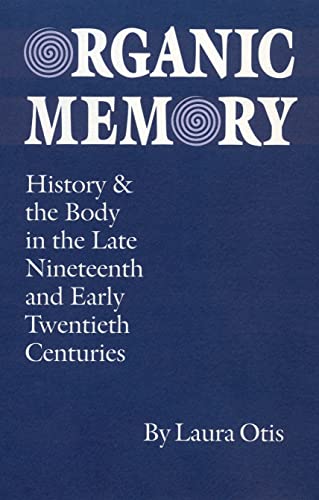Articoli correlati a Organic Memory: History and the Body in the Late Nineteenth...
Organic Memory: History and the Body in the Late Nineteenth & Early Twentieth Centuries: History and the Body in the Late Nineteenth and Early Twentieth Centuries - Rilegato

In the nineteenth century, mainstream science embraced a long-standing superstition: the belief that memory could be inherited. Scientists reasoned that, just as bodies were reproduced from generation to generation, so were thoughts, memories, and cultural achievements. Heredity and identity were no mere family matter, but the basis of nations. The glories and sins of the past were not gone: they remained in the tissues of living people, who could be honored or blamed accordingly.
Organic Memory surveys the literary and scientific history of an idea that will not go away. Focusing on the years between 1870 and 1918, Otis explores both the origins and the consequences of the idea that memories can be inherited. The organic memory theory contributed to the genocidal programs of the Third Reich, and it erupts in pop-psychology, racist propaganda, and ethnic cleansing.
To track the spread, intensity, and endurance of this especially powerful idea, Otis singles out major authors whose work reinforced or ridiculed belief in organic memory. They include writers who were internationally influential yet who simultaneously represented their national traditions: Thomas Mann, Sigmund Freud, C. G. Jung, Emile Zola, Thomas Hardy, Miguel de Unamuno, Pío Baroja, Emilia Pardo Bazán, and even Sir Arthur Conan Doyle.
The debates over the human genome project and the explosions of ethnic violence in the former Yugoslavia, in Azerbaijan, Somalia, and elsewhere demonstrate how seriously organic memory continues to affect modern medicine and politics.
Le informazioni nella sezione "Riassunto" possono far riferimento a edizioni diverse di questo titolo.
Le informazioni nella sezione "Su questo libro" possono far riferimento a edizioni diverse di questo titolo.
- EditoreUniv of Nebraska Pr
- Data di pubblicazione1994
- ISBN 10 0803235615
- ISBN 13 9780803235618
- RilegaturaCopertina rigida
- Numero di pagine300
Compra nuovo
Scopri di più su questo articolo
Spese di spedizione:
EUR 3,97
In U.S.A.
I migliori risultati di ricerca su AbeBooks
Organic Memory: History and the Body in the Late Nineteenth and Early Twentieth Centuries (Texts and Contexts)
Descrizione libro Hardcover. Condizione: new. New Copy. Customer Service Guaranteed. Codice articolo think0803235615
Organic Memory: History and the Body in the Late Nineteenth and Early Twentieth Centuries (Texts and Contexts)
Descrizione libro Hardcover. Condizione: new. New. Codice articolo Wizard0803235615

